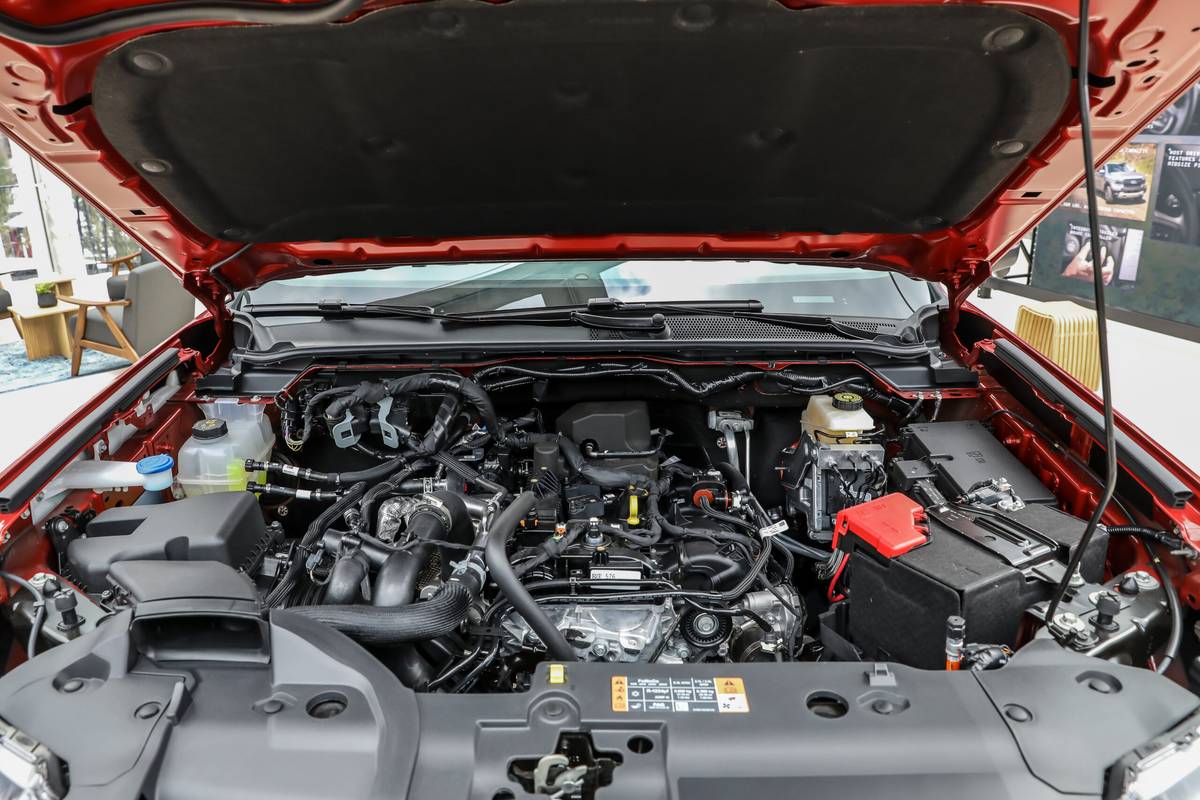How the 2.2 Ford Ranger Engine Delivers Power and Efficiency for Your Truck
How the 2.2 Ford Ranger Engine Delivers Power and Efficiency for Your Truck
Blog Article
What Makes a Vehicle Engine Run Smoothly: Leading Tips for Ideal Treatment
The smooth operation of an auto engine is fundamental to both efficiency and longevity, making optimum care a necessary duty for car owners. What specific steps should you prioritize to guarantee your engine remains in peak problem?
Normal Oil Modifications
One of the most important elements of car upkeep is ensuring your engine obtains normal oil adjustments. Engine oil lubes interior components, decreases friction, and helps maintain ideal operating temperature levels. With time, oil deteriorates because of warm, pollutants, and the all-natural by-products of combustion, leading to reduced efficiency and possible engine damage.
A lot of manufacturers suggest transforming the oil every 5,000 to 7,500 miles, but this period can vary based on driving problems and oil type. Synthetic oils may allow for longer periods in between modifications. Normal oil adjustments not just boost engine performance however also improve fuel efficiency, as clean oil promotes smoother procedure.
Overlooking oil changes can cause sludge buildup, which hinders circulation and can result in extreme engine problems. It is crucial to inspect oil levels frequently and keep track of for any unusual adjustments in shade or consistency, which could suggest contamination or deterioration.

Keeping Coolant Levels
Maintaining proper coolant levels is crucial for avoiding engine overheating and ensuring ideal performance. The coolant, generally a blend of water and antifreeze, flows via the engine, soaking up warm and avoiding thermal tension. Inadequate coolant can result in increased engine temperature levels, which might create extreme damage or perhaps total engine failing.
To keep ideal coolant degrees, frequently inspect the coolant tank, typically situated in the engine bay. Ensure the coolant is loaded to the suggested mark, as shown in your vehicle's proprietor handbook. It is recommended to examine the levels at the very least when a month or soon trips, especially throughout severe weather.
If you observe that the coolant level is continually low, there may be a leakage in the air conditioning system, which should be attended to immediately to stop additional difficulties. 2.2 ford ranger engine. Additionally, purging the coolant system every a couple of years can help remove any kind of collected debris and guarantee effective warm exchange
Monitoring Air Filters

It is suggested to examine the air filter every 12,000 to 15,000 miles, or much more often if driving in dusty or negative conditions. A straightforward aesthetic assessment can frequently reveal whether the filter is filthy or harmed. If the filter appears stained or has noticeable dust build-up, it must be replaced immediately.
Making use of a premium air filter developed for your specific automobile model can additionally improve engine performance. Additionally, some lorries may go to this website gain from recyclable filters that can be cleaned up and reinstalled, giving a affordable and eco pleasant option.
Inspecting Flicker Plugs
Ignition system are crucial components of a vehicle's ignition system, directly affecting engine efficiency and effectiveness. They produce the spark that ignites the air-fuel blend in the burning chamber, helping with the engine's power generation. Regular evaluation of ignition system is crucial for keeping optimum engine function and avoiding possible issues.
Throughout an assessment, try to find indications of wear or damages, such as fractures, carbon build-up, or too much space widening. A healthy and balanced stimulate plug generally exhibits a light brownish or tan shade. Dark soot or oil down payments can suggest inappropriate combustion, while a blistered or white appearance might suggest getting too hot. Both problems call for immediate attention to protect against further engine damage.
It's advisable to evaluate ignition system every 30,000 miles, or as suggested in your automobile's proprietor handbook. Furthermore, consider replacing them according to the producer's standards, as used or old trigger plugs can result in misfires, reduced fuel efficiency, and increased exhausts.
Tracking Tire Pressure
Under-inflated tires can lead to decreased fuel effectiveness, enhanced tire wear, and endangered handling. Regular surveillance of tire pressure is important for optimal car procedure.
Tire stress ought to be inspected a minimum of once a month and in the past long trips. Utilize a reputable tire stress gauge to determine the stress when the tires are cool, preferably prior to the car has been driven for at least 3 hours. Describe the automobile's proprietor handbook or the placard located on the vehicle driver's side door jamb for the supplier's advised stress levels.
It is necessary to this link keep in mind that tire stress can vary with adjustments in temperature; a decline of 10 ° F can lead to a 1-2 psi decrease in stress. Additionally, aesthetically evaluate tires for any kind of indicators of wear or damage throughout your tracking regimen. Preserving appropriate tire pressure not just enhances vehicle safety but also boosts fuel effectiveness and prolongs tire life, eventually adding to a smoother engine performance.
Final Thought
To conclude, keeping a car engine's smooth procedure needs thorough interest to several vital factors. Routine oil changes, correct coolant degrees, clean air filters, properly maintained trigger plugs, and ideal tire pressure collectively add to improved efficiency and long life. Complying with these maintenance practices not only boosts gas performance however additionally promotes a more secure driving experience. Ultimately, an aggressive strategy look at this site to engine treatment is crucial for making sure reliability and capability gradually. 2.2 ford ranger engine.
One of the most essential facets of automobile maintenance is guaranteeing your engine gets routine oil modifications. Engine oil lubricates interior parts, lowers friction, and helps maintain optimal operating temperatures. Regular oil adjustments not just improve engine performance however likewise improve gas effectiveness, as tidy oil advertises smoother procedure.
Insufficient coolant can lead to increased engine temperature levels, which might cause extreme damages or even total engine failing.

Report this page